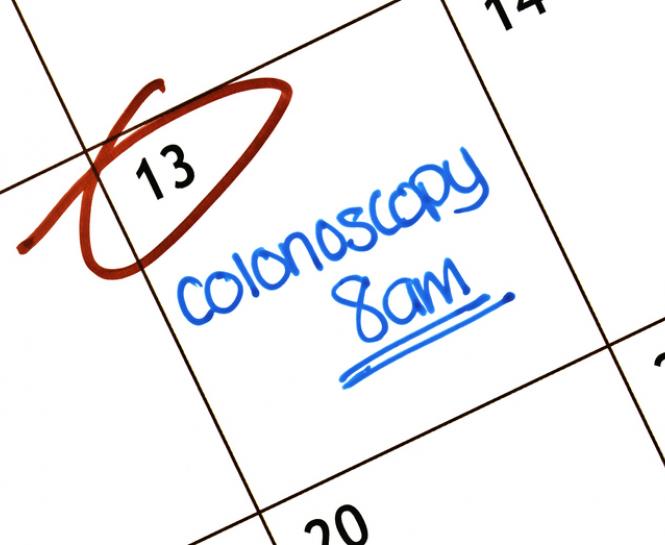Catholic Health Gastroenterologist Elliott Birnstein, MD, answers questions about the rise of colorectal cancer in young adults.
Q. Is colorectal cancer on the rise in young adults?
Yes, colorectal cancer is on the rise in young adults. I have treated multiple patients who were diagnosed in their 30s. They were in good health and surprised by the diagnosis, thinking colorectal cancer is something found in much older adults.
The increase of people being diagnosed with colorectal cancer in their 20s, 30s and 40s is making it critical that we emphasize to those age groups the importance of taking care of themselves with healthy lifestyle habits and checking in with their doctors if they have any concerns. Colorectal cancer is highly treatable, but only if it is diagnosed at an early stage.
Young people often think their age exempts them from routine exams and screenings. They may not even have a primary care physician (PCP). When it comes to colorectal cancer, the data shows that they should be vigilant about their health and talk to a PCP about preventive health measures.
Q. What do statistics say about colorectal cancer?
In January 2024, the American Cancer Society reported that colorectal cancer is now the leading cause of cancer death in younger adults—it is the leading cause of cancer death for men under age 50 and the second leading cause of cancer death for women under age 50. Previously, it was the fourth leading cause of cancer death in both men and women under age 50.
This report is the latest in recent developments around the rise of colorectal cancer cases in young adults. In 2021, based on increased cases, the U.S. Preventive Services Task Force revised its recommendation for colorectal cancer screening.
People at average risk should get a colonoscopy at age 45 and continue to do so regularly until age 75. The previous recommendation was age 50.
For those at higher risk, the recommendation remains to get screened earlier and to talk to your gastroenterologist about the frequency of screening.
Q. Why is colorectal cancer on the rise for young adults?
The reason for the rise in colorectal cancer in young adults is unknown. Some experts have suggested poor diet and nutrition, a sedentary lifestyle, and the increase in obesity rates. As I have seen with my patients, however, people in their 30s, considered healthy with minimal to no risk for colorectal cancer, are being diagnosed.
The only certainty we know is that young adults need to follow the updated screening recommendations for a colonoscopy.
Q. Why is colorectal cancer screening so important?
The concern about this rise in colorectal cancer death in younger adults is that they are being diagnosed at later stages when the cancer is more advanced and more difficult to treat.
Younger patients may not keep up with annual exams or make doctor appointments as frequently as older adults. So, they reach out for medical care when symptoms of colorectal cancer, such as abdominal pain, rectal bleeding or change in bowel movements, have already developed.
A diagnosis is life-altering for people in the age range that makes them Gen X, Millennials and Gen Z. A cancer diagnosis is never OK at any age. Still, young people tend to be at the start of their careers, building families and social networks and becoming financially stable. Getting diagnosed with colorectal cancer quickly changes plans and goals.
The good news is if we catch the cancer early enough, then we have a higher likelihood of treating it successfully. So, do not wait to make an appointment with your doctor if you are showing symptoms or have other health concerns. Also, keep up with your annual exam!
Q. What other ways can the risk of colorectal cancer be reduced?
Living a healthy lifestyle may help reduce the risk of cancer and other diseases. Creating a solid foundation for optimal health and wellness at a young age will make a difference in keeping your body and mind healthy as you age.
- Exercise regularly.
- Eat a well-balanced diet.
- Reduce stress.
- Do not smoke.
Q. Should young adults get genetic testing for colorectal cancer?
Typically, genetic testing is recommended if there is a strong family history of cancer. We know that family history is a significant risk factor for colorectal cancer, especially if a first-degree relative, such as a parent or sibling, was diagnosed with colorectal cancer or advanced polyps.
Genetic counseling will evaluate if a person has specific gene mutations that may increase their risk for cancers such as colorectal cancer. Lynch syndrome, also known as hereditary non-polyposis colorectal cancer (HNPCC), is the most common form of hereditary colorectal cancer. People with Lynch syndrome are at increased risk for colorectal cancer and other cancers when young, typically before age 50.
If you think you may be someone who could benefit from genetic counseling, speak with your primary care physician or gastroenterologist.
Q. Are at-home screening tests helpful in detecting colorectal cancer?
Gastroenterologists understand that colonoscopies have a bad reputation! Patients will often ask if they can instead use an at-home test they have seen advertised. While colonoscopy is the gold standard test for colon cancer screening, stool-based tests may be used as an alternative in certain patients who do not wish to undergo colonoscopy.
Patients should understand, however, that not everyone is a candidate for stool-based testing. Also, a positive stool test result would then require a diagnostic colonoscopy. Of course, doing some screening test is always better than no screening.
Most importantly, colon cancer screening tests such as a colonoscopy can help detect colorectal cancer in its earliest stages when it is most treatable. So, speak with your primary care physician or gastroenterologist about when screening is appropriate for you.
Find Care at Catholic Health
Find a Catholic Health doctor near you. Or call 866-MY-LI-DOC (866-695-4362). Explore colorectal cancer services.





